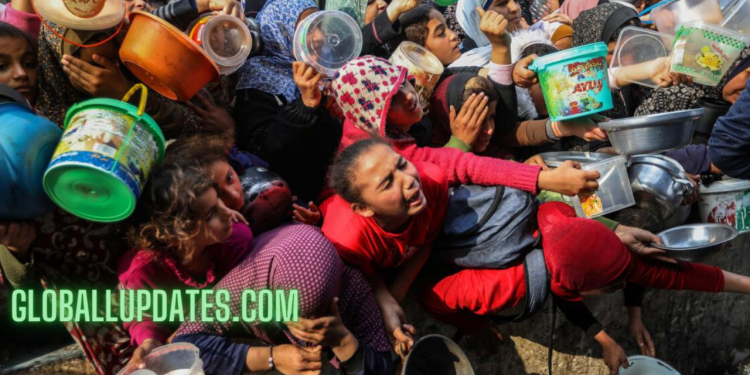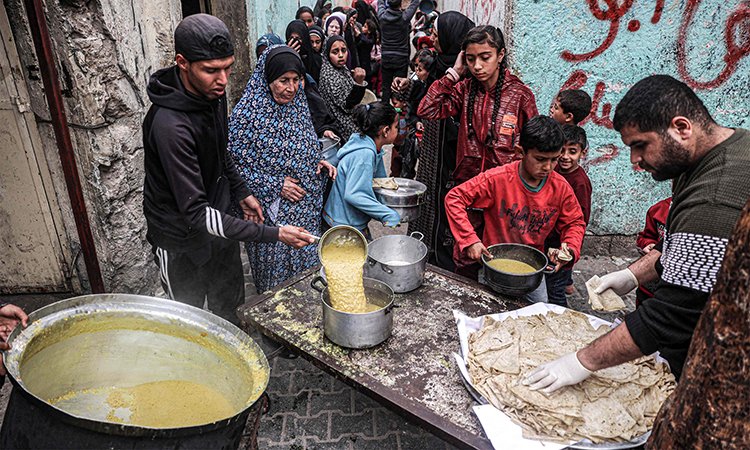As the dawn of last Monday ushered in Ramadan, the people of Gaza faced the bitter irony of greeting the holy month, traditionally observed with fasting from dawn until dusk, amidst an escalating threat of famine.
For five months, the war has left almost the entire Gazan population reliant on food aid for survival. “The people here have been involuntarily fasting for months,” stated Dr. Amjad Eleiwa, a senior emergency department official at Gaza City’s al-Shifa hospital. He highlighted the desperate search for food among residents, who find little to no sustenance available.
The conflict, triggered by Hamas’s attacks on 7 October and Israel’s subsequent bombardments, has ravaged Gaza’s food supply infrastructure and farmland. Aid agencies have reported that Israeli security measures on delivery trucks have severely hampered aid distribution.
The IPC, a global authority on famine classification, warned that half of Gaza’s population is already facing starvation, with the entire region potentially falling into famine by July.
In northern Gaza, the situation is dire. Residents, accustomed to the Ramadan traditions of suhoor and iftar, now face empty tables. The festive atmosphere of previous years has been replaced by devastation and a daily struggle for food, with prices for basic commodities skyrocketing.
Nadia Abu Nahel, a mother of 10 in Gaza City, contrasted this year’s bleak Ramadan with the abundance of the past. The dire food shortage has left children malnourished, struggling with weakness and health issues.
The charity Care reports that malnutrition and dehydration have claimed the lives of at least 27 people, including 23 children, in northern Gaza in recent weeks, with the actual number likely higher. Dr. Eleiwa recounted the tragic cases he has seen, including a young boy and a teenage girl who succumbed to their conditions amid the crisis.















































